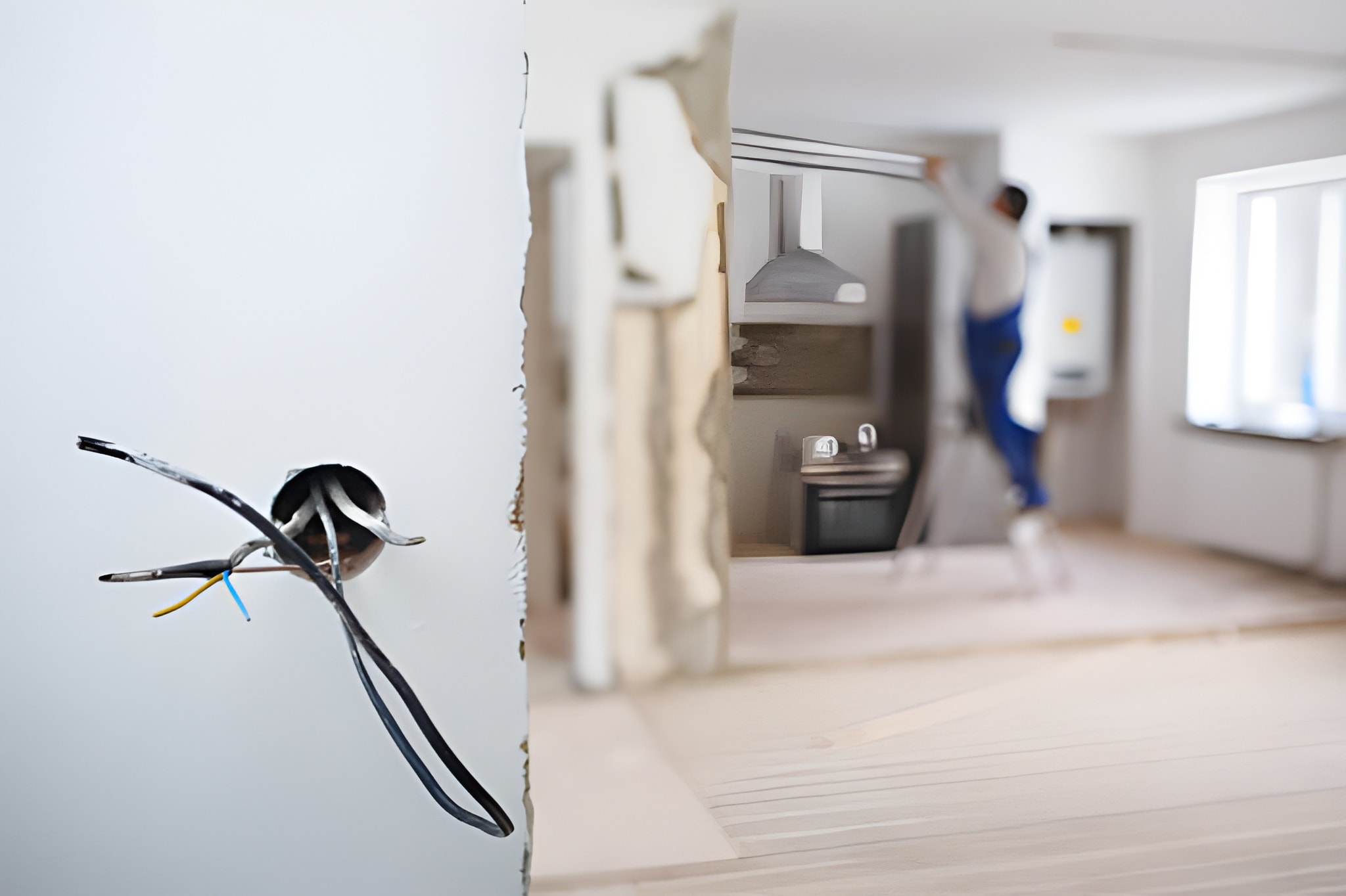House Rewiring in Mill Creek, WA
House Rewiring in Mill Creek, WA
Older wiring is one of the most common safety and performance problems in homes across Mill Creek, WA. Whether your house has aging cloth-insulated cables, original knob-and-tube, or aluminum branch wiring, outdated systems can create fire risk, nuisance breaker trips, and an inability to safely power modern appliances like heat pumps, EV chargers, and home office equipment.
Common rewiring issues in Mill Creek homes
- Aging insulation and cloth wiring: Insulation that has become brittle can expose conductors and cause shorts.
- Knob-and-tube wiring: Early wiring systems lack grounding and are not compatible with modern loads or insulation practices.
- Aluminum branch circuits: Aluminum wiring installed in mid-century homes can loosen at connections and cause overheating if not properly handled.
- Undersized panels and few circuits: Original service panels and limited breakers create overloaded circuits and frequent trips when running modern appliances.
- Lack of AFCI/GFCI protection: Many older systems do not include required arc-fault and ground-fault protection for bedrooms, kitchens, bathrooms, and outdoor circuits.
- Moisture-related corrosion: Mill Creeks wet winters and coastal-influenced humidity can accelerate corrosion at connections, especially in basements, crawlspaces, and outdoor service equipment.
- DIY or unpermitted modifications: Unpermitted changes or amateur repairs often introduce hazards and complicate later upgrades.
How a professional inspection and plan is developed
A thorough diagnostic process informs a safe, code-compliant rewiring plan:
- Visual and thermal inspection - Inspectors look for frayed insulation, overloaded breakers, rusted connections, and use thermal imaging to find hot spots.
- Service and load assessment - A load calculation determines whether your existing service size and panel can support current and future needs like EV charging or a heat pump.
- Targeted testing - Basic continuity, ground, and insulation resistance tests reveal hidden faults.
- Scope and phasing plan - Based on findings, your electrician will recommend whole-home or partial rewiring, prioritize safety-critical circuits, and create a phased schedule to minimize disruption.
- Permit and code review - Local permit requirements and Washington State electrical codes are incorporated into the plan before any work begins.
Whole-home vs partial rewiring: choosing the right approach
- Whole-home rewiring is the most thorough option when the majority of wiring is original, multiple hazards exist, or you plan significant electrical upgrades. It ensures a consistent, modern system and reduces future interruptions.
- Partial rewiring targets specific problems such as a single floor, a remodeled kitchen, or replacing known hazardous aluminum or knob-and-tube circuits. This can be staged over time to spread disruption and cost.
- Decision factors include the age and condition of existing wiring, your renovation timeline, and plans for new high-demand equipment.
Phased installation approaches and what to expect
Phased rewiring keeps your home usable while work proceeds:
- Phase 1: Preparation and permits - Protect living areas, obtain permits, and schedule inspections.
- Phase 2: Rough-in - Run new cables, install new boxes and conduits, and relocate or replace electrical panels as required. This is often the most disruptive stage.
- Phase 3: Inspection - Building inspectors verify rough-in compliance before drywall or finishes are closed.
- Phase 4: Finish wiring - Install outlets, switches, fixtures, and breakers. Final connections are made and labeling is completed.
- Phase 5: Final testing and sign-off - Safety tests are performed and the job is documented for the final inspection.
Typical timelines vary by scope: a single-room partial rewire can often be completed in days, while whole-home projects may take multiple weeks depending on size and access.
Upgrades for modern loads and safety
Rewiring is a prime opportunity to modernize electrical infrastructure:
- Panel upgrades and service increases to support 200 amp services or larger for EV chargers and heat pumps.
- Dedicated circuits for major appliances, home offices, and high-draw devices to reduce nuisance trips.
- GFCI and AFCI protection where required by current code for improved shock and fire prevention.
- Surge protection at the service panel to protect electronics from utility and lightning-related surges common during storms.
- Smart breaker and meter-ready wiring to support home energy management and future integrations.
Code, permitting, and inspections in Mill Creek
Rewiring work must comply with the National Electrical Code and Washington State amendments, and it requires local permits and inspections. Mill Creek and Snohomish County enforce permitting for significant electrical work. A licensed electrician will submit required plans, schedule rough-in and final inspections, and ensure all work meets current codes, including proper grounding, bonding, and the use of listed materials. Proper permitting protects resale value and satisfies insurance requirements.
Safety testing and post-work documentation
After new wiring is installed, expect comprehensive testing and clear documentation:
- Electrical testing includes continuity checks, insulation resistance, polarity verification, ground resistance, AFCI/GFCI trip testing, and load verification where applicable.
- As-built diagrams and panel labeling show new circuit mapping and device locations for future reference.
- Permit sign-off and inspection reports confirm compliance with local code.
- Workmanship warranties and parts guarantees are typically provided in writing so homeowners have assurance of ongoing support.
Benefits of timely rewiring for Mill Creek homeowners
Rewiring reduces fire risk, improves reliability during storms, enables modern conveniences like heat pumps and EV charging, and increases home value and insurability. For Mill Creek homes facing wet winters and growing electrical demands, updating electrical systems not only addresses immediate safety concerns but also future-proofs the home for changing technology and lifestyle needs.
If your home shows signs of outdated or unsafe wiring, a licensed electrician can evaluate the condition, explain phased options, and prepare a plan tailored to the unique needs of Mill Creek homes and local code requirements.

Customer Testimonials
Service Areas



